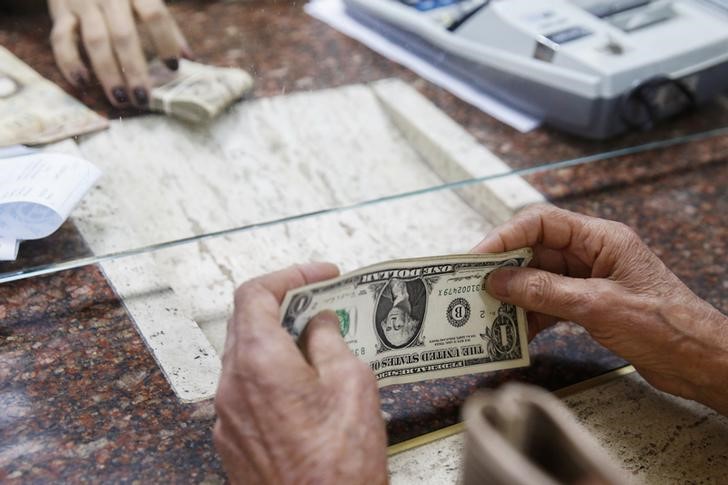CARACAS (Reuters) - Venezuela will allow local banks to open foreign currency trading platforms as part of a loosening of the OPEC nation's exchange controls, according to a central bank resolution published on Tuesday.
President Nicolas Maduro, facing a hyperinflationary economic collapse and a relentless weakening in the bolivar currency, has repeatedly promised to overhaul the system. But numerous plans have floundered because the central bank did not supply enough currency to meet market demand.
Economists routinely identify the struggling country's exchange control system as a hindrance to possible recovery from the economic meltdown. But financial industry experts warned Tuesday's move does not eliminate the 16-year-old system of currency controls.
The resolution says financial institutions will be authorized to carry out "purchase and sale of foreign currency by individuals and businesses." The central bank did not specify when the so-called "exchange tables" would begin to operate.
The measure will reduce the central bank's involvement in private sector exchange operations. But the resolution notes that the central bank will retain the right to intervene in the market and will be the entity that publishes the official exchange rate, after receiving information from each bank.
Central bank data shows the monetary authority has sold just $32 million through its Dicom foreign exchange system so far this year. Maduro's government has provided less and less foreign exchange to be auctioned through the Dicom system since oil prices collapsed in 2014.
The central bank stopped offering any foreign currency for sale through Dicom in the last week, after the United States slapped sanctions on the bank as part of its bid to pressure Maduro to step down.
A slew of U.S. sanctions on Venezuela since 2017 have made it ever-harder for local banks to move funds abroad, since foreign banks are hesitant to provide intermediary services.

Recently, the central bank began using piles of cash rather than electronic transfers to sell foreign exchange to local banks, a sign of how the nation's economy has become increasingly primitive.